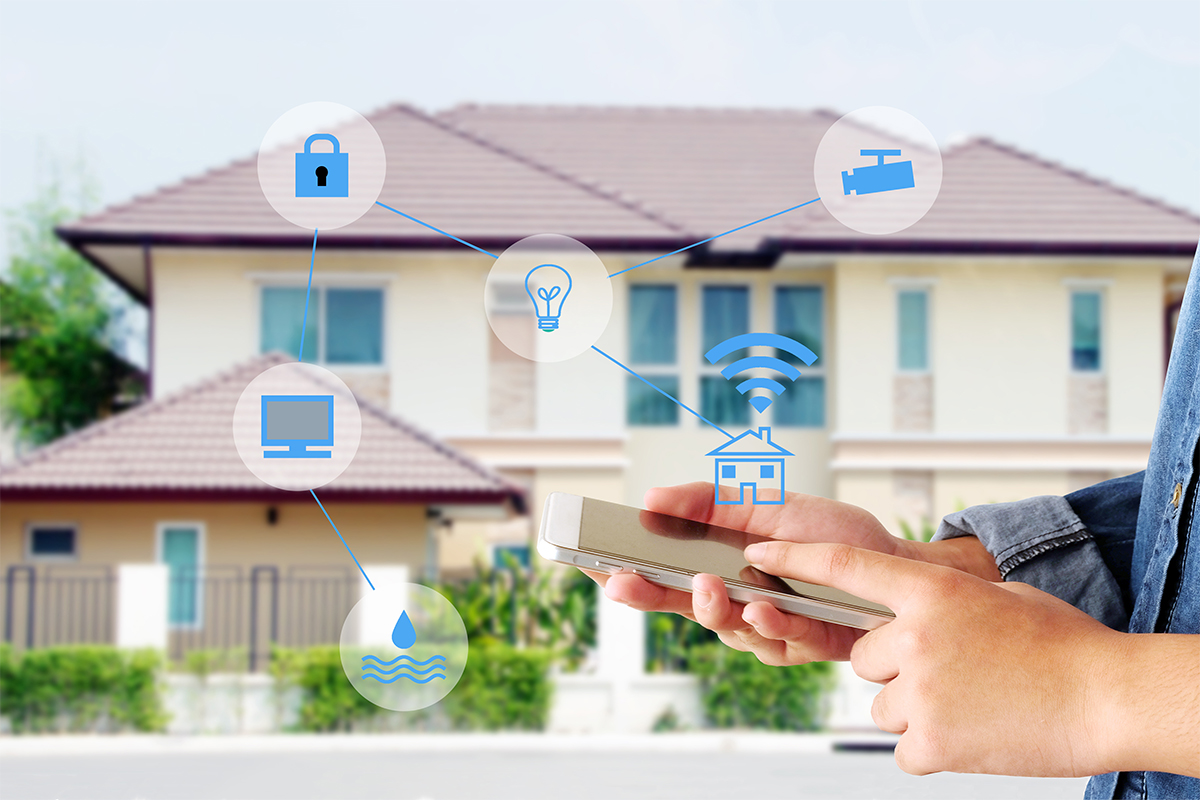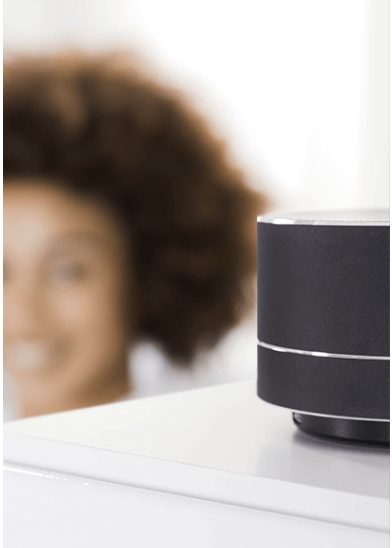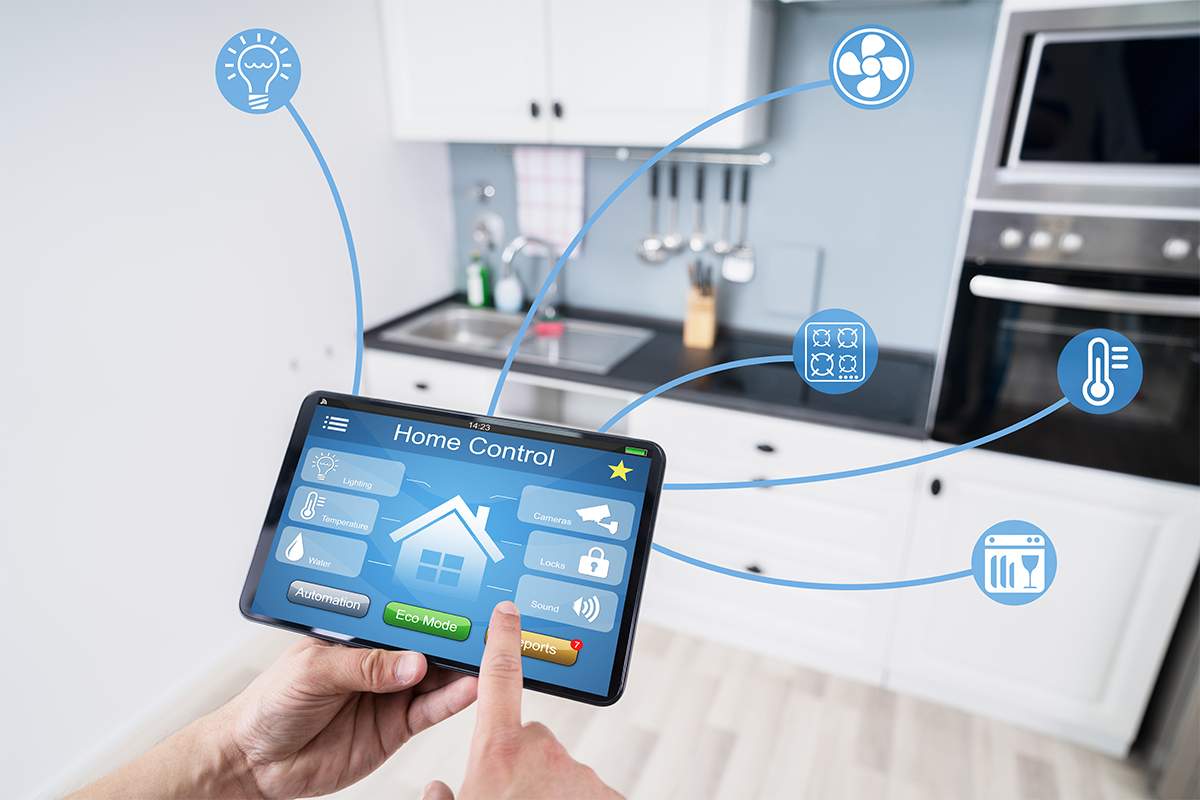Most people are already familiar with the concept of a smart home that can monitor and/or control home systems such as climate, entertainment, and appliances. However, thanks to the rapid growth of technologies, such as the Internet of Things (IoT) and Artificial Intelligence (AI), the potential of home automation is greater than ever.

A Better Listener in Your Home

In an AI-enabled smart home, the inhabitants can remotely check and control home systems such as smart speakers, lighting, sensors, domestic appliances, door locks and cameras, and central heating thermostats. Other connectable appliances, such as auto-opening trashcans or voice-controlled drapes, can also make our daily routines more convenient and comfortable.
A rapidly growing trend for AI-enabled smart homes is the integration and utilization of voice-command for its connected devices, including smart speakers such as the Amazon® Alexa or the Google® Home. Whether it’s making a grocery list, looking up information, taking a note, or sending a reminder, the voice-command smart assistant has a noticeable impact on home automation. Indeed, the always-on/always-listening AI assistant is incredibly popular for its voice search functions, with 55% of households in the US being expected to own a smart speaker by 2022.
Smart speakers are only at the tip of the iceberg when it comes to what the smart home experience can be. By giving more control and data-driven insights, occupants can enjoy a safer and more comfortable living environment. For people who would like to be more energy-efficient and more eco-friendly in their daily routines, smart homes can monitor and measure exactly how much energy is consumed in a household.
Artificial intelligence will play a pivotal role in this effort by using data—including grid data, smart meter data, weather data, and energy use information—to study and improve building performance, optimize resource consumption, and increase comfort and cost-efficiency for residents. AI will also help analyze data collected from multiple buildings to not only improve building design and construction, but also inform and influence future policy-making related to construction and urban planning.
Enabling Smart Home Automation
What makes a home “smart” is the integration of digital devices with sensors and machine learning. These devices can connect to the Internet and “talk” with the other Internet-enabled devices in the household.
This process has become more prevalent in recent years due to the rapid development and expansion of the IoT. IoT enables various electronic and digital devices to connect and send data over wireless networks, enabled mainly through connectivity standards such as cellular, Wi-Fi® , Bluetooth® , near-field communication (NFC), and radio-frequency identification (RFID).
The other key part that enables smart homes is AI. AI has already been implemented in smart speakers as well as in mobile devices, electrical gadgets, and appliances such as washing machines and refrigerators. With the power of AI, home devices can perform specific tasks automatically without human input or intervention. Furthermore, advances in machine learning (ML) technology mean that the next generation of smart home artificial intelligence will automatically learn and improve the user experience based on the data it collects and analyzes.
Future Impact of AI in Smart Homes
An AI-enabled smart home can turn collected data into a design behavior that suits our daily life. For example, your home can learn not to turn on the heater or the fan when no one is in the house. Also, your home can learn to automatically lock the doors and bolt the garage if and when the inhabitants are away.

The repetitive patterns of everyday life are particularly prime for AI-powered analytics. After learning the inhabitants’ routines, the smart home AI can make predictive recommendations and provide personalized automation. For example, after learning the occupant’s pattern of behavior, which might include unlocking the door, turning on a light, and turning on a water boiler, the system can combine these actions to trigger automatically, if the occupant’s smartphone is within a certain proximity to the home.
An AI-powered smart kitchen can learn the user’s preferences and set up the kitchen area before they even get home. Or it could set up the workspace each day by loading up certain computer applications or highlighting important work messages.
With a robust network of IoT devices collecting and analyzing data, AI will soon gain the ability to adapt to users’ specific needs and goals. Instead of being a passive listener awaiting instructions, your smart home AI can take an active role in managing aspects of daily life. A smart home AI can automatically set your alarm early because it knows you have an early meeting in the morning. Or it could automatically prepare a bath for you after recognizing that you are driving home late at night after work. Either way, the future of smart home intelligence will be a lot more predictive and analytical.
How Ambiq Contributes
Ultra-low power multi-protocol Bluetooth wireless microcontrollers from Ambiq® are at the heart of millions of edge devices that are shaping the building blocks of smart homes and the IoT world.
Ambiq’s leading ultra-low power SoCs can support key technologies required by connected homes and smart buildings such as Bluetooth Low Energy. Future generations will include additional multi-protocol communications such as Bluetooth® Mesh, ANT+, RF4CE, and Zigbee® .
Built on our patented Sub-threshold Power Optimized Technology (SPOT® ) platform, Ambiq’s products reduce the total system power consumption on the order of nanoamps for all battery-powered edge devices.
Simply put, our solutions enable edge intelligence everywhere.

